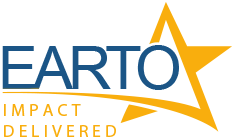26 / 07 / 2022
EARTO Paper on EIC MGA IPR Provisions
EARTO Members are very active participants in EU RD&I Framework Programmes for the last decades. In our last analysis, EU grants to Research & Technology Organisations (RTOs) are relatively much larger than RTOs’ share in the total number of FP participants. RTOs have a leading position and driving role in FPs’ multi-disciplinary and collaborative projects. FP projects where RTOs are active have a larger participation from industry than projects without RTOs. In this context, EARTO Members are involved in many instruments of the current Horizon Europe programme, including the European Innovation Council (EIC) in Pillar 3. We hereby would like to bring the attention to issues related to the new Horizon Europe MGA text on IPR provisions for EIC as follows:
- The assumption that the inventor (scientist) is always the best person/entity to commercially exploit his/her invention is plainly wrong. Experience shows that only a very limited number of scientists has the required skillset to exploit IP and/or is willing to do so.
- Spreading the rights of exploitation of IP resulting from research over the involved scientific personnel would greatly diminish the role of dedicated TTO organisations with RPOs, that were created in the first place to foster the exploitation of research results and would be counterproductive.
- The question of the sharing of royalties between the employer and the inventor is already settled in most Member States through national laws (for PROs with civil servants employees) or recommendations (for not for profit research organisations where employees are not civil servants) with the classic IPRs conditions, where the TTO of the RPO takes charge of the valorization.
- The EIC should use the examples of the IPR provisions from already well established and performing EU programmes supporting RPOs TTOs in the creation of start-ups managed by the EIB & the EIF (i.e. with TTO in charge of valorization activities, and not individual inventors, and inventors interested in particular in the sharing of royalties).
Moreover, such ill-thought IPR provisions will certainly slow down the process of implementing EIC projects: indeed, for each selected project, the internal TTOs of the PROs would have to, in addition to the set-up proper consortium agreement, either negotiate internally with their inventors the conditions for sharing IP rights between the employer and its inventor (a real administrative labyrinth), or start with the EC, project by project, the long negotiation to opt out of the default scheme by using the third bullet point: “if the beneficiary considers that the exploitation activity could negatively affect its own exploitation activities (as set out in the plan for exploitation and dissemination), it may request the granting authority to suspend the EIC Inventor’s access rights”.
In conclusion, the new EIC IPR conditions are not only counterproductive they are also not workable. EARTO strongly recommends that the EC implements in the EIC the same IPR provisions as in the rest of Horizon Europe (traditional IPR provisions). EARTO and its Legal Experts remain ready to provide additional input on this topic and are available for further discussion with EU institutions to ensure a successful implementation of the EIC.
Read the full EARTO Paper on EIC MGA IPR Provisions

